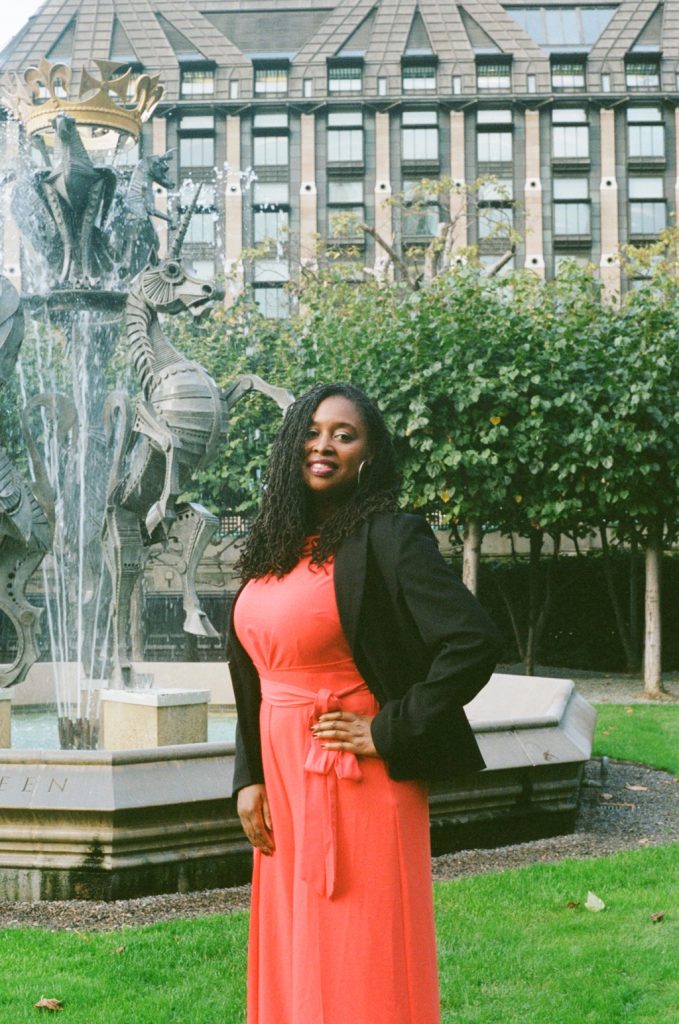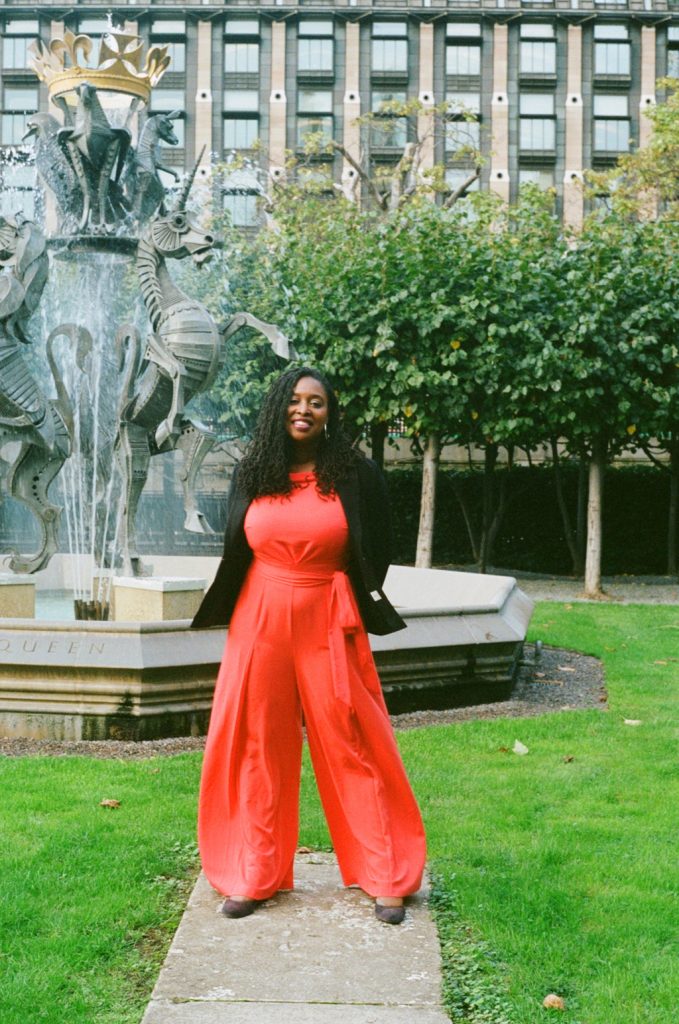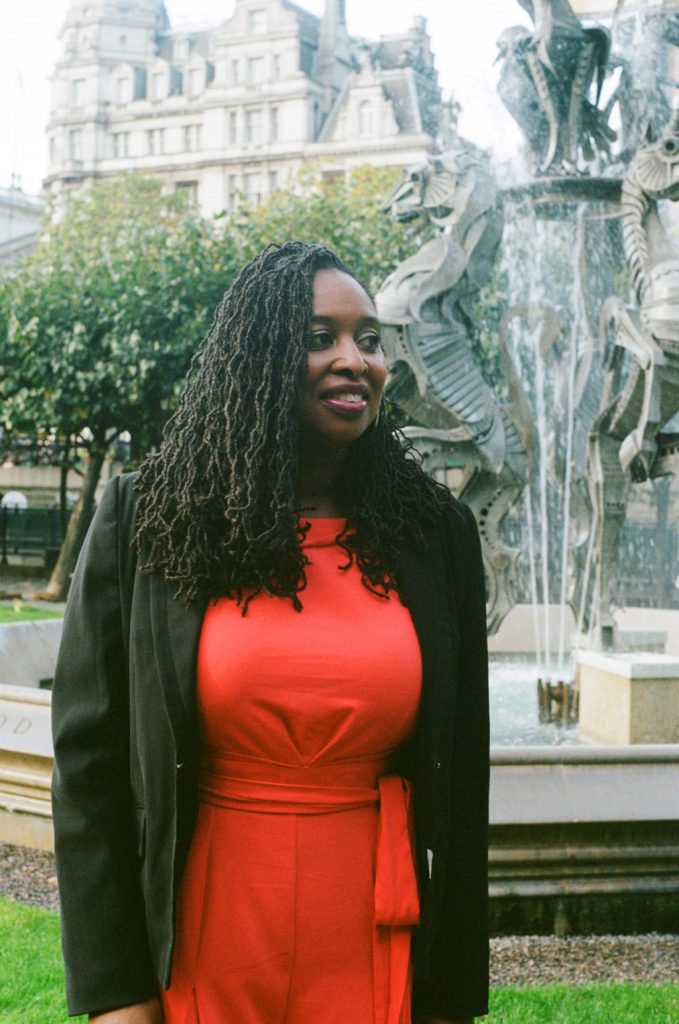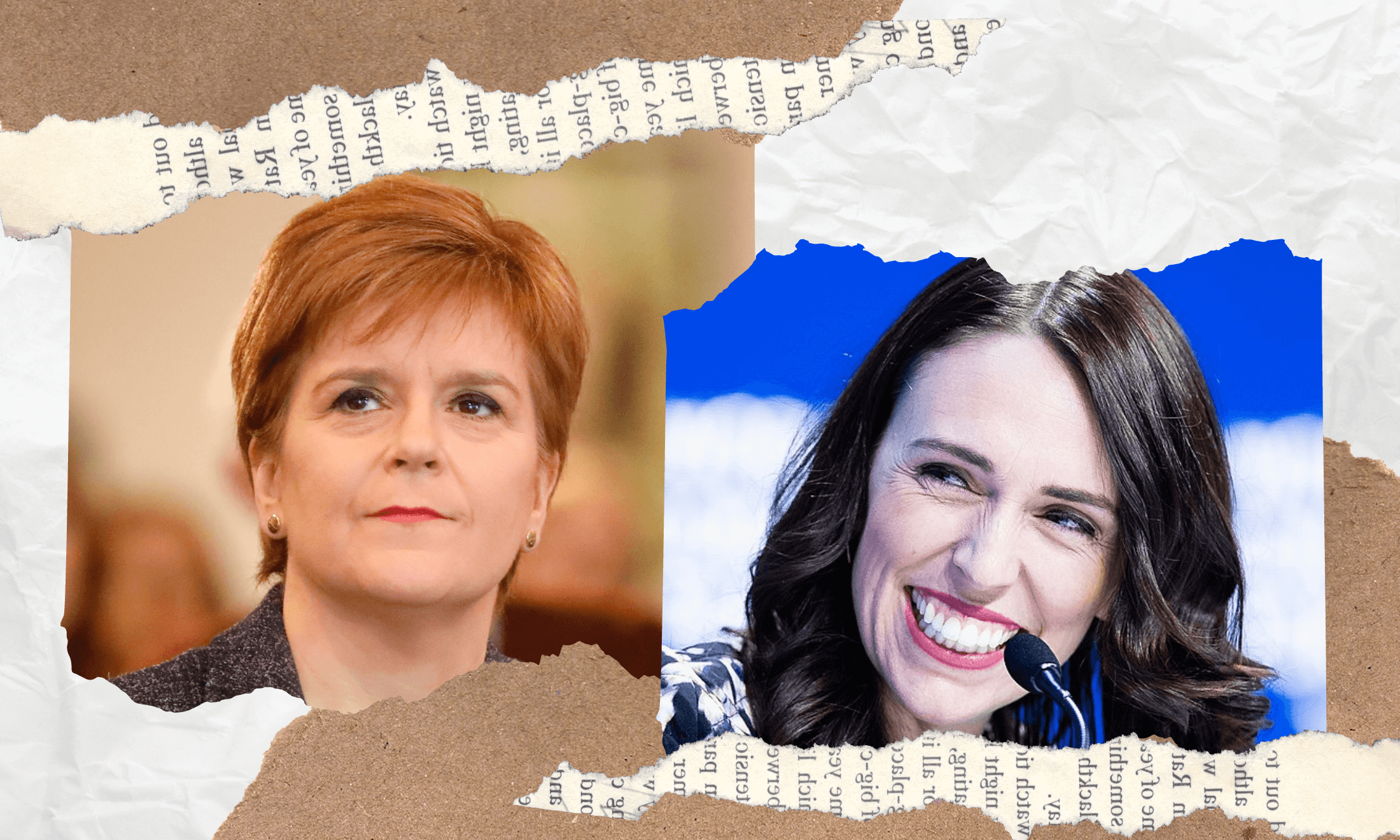
As Dawn Butler puts in her bid for deputy, the accidental MP reminisces on her ‘hard route’ into Westminster
Leah Cowan
08 Nov 2019
Photography by Zeinab Batchelor
Yesterday, Dawn Butler announced that she is seeking to become the Labour Party’s next deputy leader. This doesn’t come as a surprise to me. On a blustery day in Brighton in September, I made my way down the pebble beach, on a quest to meet Dawn in a seafront hotel. The conversation we had revealed Dawn as a true force to be reckoned with. She has made a statement by becoming the first candidate in the leadership race, and explaining that as deputy leader, she wants to help Labour “transform the country and make sure that the country is fairer and dismantle the structural barriers that hold people back”.
Dawn is the Labour party’s Shadow Secretary of State for Women and Equalities and an MP for Brent Central. She is in Brighton with her team for the second day of the annual Labour Party Conference. The annual get-together has fallen during a particularly chaotic moment in Westminster history: a few days after we meet, Boris Johnson’s five-week suspension or “prorogation” of parliament is ruled unlawful and cut short. What follows is weeks of political toing and froing under which our date to leave the EU got further and further away and an election was called.
Stepping away from the buzz of the Brighton conference, on the day we meet, Dawn’s team have found a quiet sanctuary in a corner of the dimly-lit lobby of a hotel. The imposing 16th-century building has hosted famous guests including literary giants Charles Dickens and WM Thackeray. In contrast to our grand surroundings, Dawn is down to earth, chatty and clearly has a good rapport with her colleagues – who have been working long hours but still have the energy to make jokes about managing their boss’ unpredictable speeches. Dawn explains: “[my staff] said to me yesterday: ‘You can’t say shit’ and I was like…‘I can’t guarantee that I’m not gonna say shit!’”. Her gallows humour shouldn’t be mistaken for a woman tired of taking on the opposition. When a Conservative MP who got upset at her noting that their party doesn’t even have a women and equalities minister, she tells me she thought to herself: “Good. I’m glad I’m keeping you on your toes. I’m glad I’m holding you to account. Good.”
With the wealth of career politicians who seemingly stand for nothing, it’s important to highlight how firm Dawn has been in her beliefs since the beginning of her political career. Her maiden speech made her commitment to closing the gender pay gap and being a voice for young people clear. More recently, Dawn’s public profile has increased as she continues to work around issues aligned with her trade union principles, such as supporting women in the workplace by advocating for 10 days of paid leave for survivors of domestic violence, bringing attention to period poverty, and pushing for “menopause-friendly” measures such as flexible working hours.
“I realised that when I was being sexually harassed I didn’t have anybody to turn to”
Dawn Butler
The flip side of becoming a household name, particularly for women of colour, is a relentless bombardment of sexist and racist abuse, which Dawn is no stranger to. In her early days of working in Parliament, she was told the lift “isn’t for cleaners” and last month Lib Dem staffer Steve Wilson publicly called her a liar for sharing this experience. She fears these daily assaults politicians face can be a deterrent for many young people considering entering the profession. Especially given the surge in far-right vitriol – as seen in the horrific assassination of her friend and fellow Labour MP Jo Cox by a right-wing extremist.
She started her career as a computer programmer, in a workplace where she was sexually harassed and abused “almost every single day”. When the opportunity to take voluntary redundancy came up she seized it eagerly and spent a year healing and raising money for different charities. “After a year, my mum said I need to get a proper job!” she laughs.
When she was invited for an “interview” at the Jobcentre (a routine meeting as part of the process of applying for Job Seekers Allowance), she thought she was attending an interview for a job. This misunderstanding was a chance accident which set her on a path she could never have expected. “I dressed up!” she tells me. “I was dressed in a suit. I had my briefcase […] and they thought I’d come to an interview for a job, so I got put in a different room. It was really very confusing because I really didn’t know how the system worked.” She was accidentally put through a test and interview for a managerial position at the Jobcentre. Not only did she manage to get through the interview with zero preparation, but she also got the job. “They do say dress for the job you want!” Dawn jokes, “I think it’s quite a powerful message.”
In the Jobcentre, Dawn managed a small team, and quickly became active in the trade union movement, including encouraging her own staff to go on strike. “I think it was too hot or too cold, I can’t remember now,” Dawn reminisces, before concluding that she thinks it must have been too cold. After working at the Jobcentre, Dawn was headhunted to work for GMB union, and when an MP defected, the party sought a trade unionist to stand in the seat. Dawn agreed, but reluctantly. “Politicians were not liked,” she explains, “and there wasn’t really anyone that looked like me or spoke like me in Parliament, so I didn’t think it was a job for me.” She lost the seat on her first attempt, but learnt from the experience and stood again in Brent, winning a landslide 69% of the vote. “I was never supposed to win,” she says with a wry smile. “My route is the hard route. That’s basically the story of my life.”
As an MP, Dawn has consistently pushed forward policies to improve working conditions for women. “I realised that when I was being sexually harassed I didn’t have anybody to turn to,” she says. “I tried to fight it for myself and I couldn’t, a trade union would have been there for me.” However, trade unions have historically not been perceived as places that prioritise workers of colour in their organising. In the 1940s and 50s, there was a prevailing narrative within trade unions that migrant workers were potential “strikebreakers” and were responsible for undercutting and depressing wages. Research conducted at the University of Warwick in the 1980s exposed the extent of union hostility to black workers, noting that: “Between the two world wars, there was an effective colour bar in British industry, supported openly by individual unions”. Countering this narrative is the fact that people of colour are statistically more likely to be union members than their white counterparts (but, of course, are less likely to hold union leadership positions).
This context demonstrates the importance of Dawn’s championing women of colour in the workplace. Particularly as discussions around Brexit and labour rights have a tendency to scapegoat migrant workers for the drop in living standards, which in reality have been caused by Tory public funding cuts. It’s rare for a politician to bring such a nuanced and “intersectional” approach to their work around this issue. Having a lived experience of how racism and sexism affect women in the workplace is precisely what brought Kimberlé Crenshaw to coin the now much-misused term “intersectionality” in the 1980s, when as a lawyer she represented black women workers in discrimination-based employment disputes.
“They say that politicians have to be thick-skinned, and they have to be resilient. Why do you have to make excuses for these sick online abusers?”
Dawn Butler
I actually first met Dawn a few years prior in Newham, at a specialist domestic violence refuge for women of colour: the London Black Women’s Project (LBWP). Dawn had been invited to meet with LBWP to talk about the national need for specialist refuge funding, a discussion which it turned out would foreshadow Newham council’s shocking announcement this year that they were defunding the project.
Dawn is warm and wise-cracking throughout our conversation, but when she talks about the struggle survivors of violence face, her words are imbued with concern and gravity. “We’ve lost 50% of refuges in London, and we’ve lost specialist services,” she tells me, referring to the national independent network of specialist support centres and refuges run “by and for” women of colour survivors. “[Women of colour] are the women who are often turned away or ignored by mainstream services, and so the knock-on effect is that, statistically, we lose almost three women a week due to domestic violence/” Dawn explains that her proposed policy for 10 days of paid leave for domestic violence survivors recognises that survivors are most in danger of being killed by a partner or former partner in the first 10 days after they leave a violent situation. Some criticisms of this policy revolve around the “cost”. To that, she replies without missing a beat. “The cost of not doing it is that a woman can be murdered. The ultimate cost is the life of a human being.”
Domestic violence is part of a spectrum of abuse which women face which interrupts and creates obstacles our everyday lives; the online vitriol and trolling Dawn’s office deals with is yet another manifestation of gender inequality. I ask her how, practically, she deals with online attacks, and she looks thoughtful. “I think it depends on the day,” she explains. “What I can’t do is respond; as a politician, you can’t. Sometimes that can be quite frustrating because sometimes you want to tell people about themselves.” At the Labour Conference this year, Dawn, and colleagues including Diane Abbott and Naz Shah, called for social media platforms to step up to the plate and crackdown on harassment by ending the ability for users to have anonymous profiles, so they can be held accountable for their actions.

Anyone who has been on the receiving end of online abuse knows that it can be hard to dismiss what feels like very personal attacks. “Solutions” which place an onus on people experiencing abuse to block and mute abusers is useful in the short-term but places the responsibility on individuals rather than addressing root causes. For women of colour in public life, the volume and nature of abuse is impossible to ignore; research by Azmina Dhrodia and Amnesty International revealed that in the run-up to the 2017 election, half of all abuse aimed at MPs was sexist, racist, and directed at one woman: Diane Abbott. “They say that politicians have to be thick-skinned, and they have to be resilient,” Dawn sighs. “Why do you have to make excuses for these sick abusers?”
As my allotted time in Dawn’s busy conference schedule comes to an end, I’m intrigued how someone so down-to-earth navigates one of the most elite professions in the world with the odds stacked against her. Amidst the quiet burble of hotel guest chatter, and the more abrasive “bangers” emitting from the bar, she tells me how it feels to work in the pale, stale hallowed halls of Westminster. “It is important to decompress. I have friends that I talk to, and it’s important that you have a safe space, so you can be vulnerable.”
In a time of political chaos, with public services cut to the bone, and a braying pack of disconnected Etonians facing her across the floor of the House of Commons, vulnerability is low on her agenda. Fighting to hold the line comes first. Westminster was never built with women of colour in mind, but Dawn Butler’s unconventional route into their wood-panelled cabinet rooms has the potential to drive a wedge into the heart of the Tory elite.











